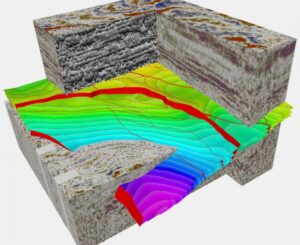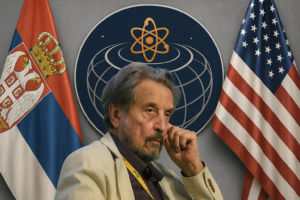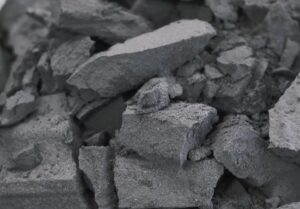
Over three years, JSC Ukrnafta explored 1,330 square kilometers using 3D seismic exploration to expand its resource base and improve the accuracy of geological modeling.
“One of the main strategic objectives is to increase hydrocarbon reserves,” the company said in a statement.
To this end, Ukrnafta is investing in modern geophysical research, which makes it possible to identify new promising reservoirs and plan drilling more efficiently.
According to Yuriy Tkachuk, acting chairman of the board of Ukrnafta, in 2025, the total area of 3D seismic exploration will be approximately 750 square kilometers.
“The field phase has already been completed at two fields, another is in progress, and research at three new fields is planned by the end of the year. This is consistent work that ensures long-term stability of production,” he said.
The company emphasized that Ukrnafta was the first in Ukraine to apply wireless 3D seismic technology in mountainous conditions. This approach makes it possible to work in difficult geological conditions, minimizes environmental impact, reduces the duration of field work, and ensures higher accuracy of geophysical data. The results obtained form the basis of digital geological and hydrodynamic models that help predict production dynamics and make informed technical decisions.
In 2026, the company plans to continue 3D seismic exploration at the most promising fields.
Ukrnafta is Ukraine’s largest oil production company and operates a national network of gas stations. In March 2024, it took over the management of Glusco’s assets and currently operates a total of 663 gas stations. It holds 92 special permits for industrial development of deposits. It has 1,832 oil and 154 gas production wells on its balance sheet.
The largest shareholder of Ukrnafta is Naftogaz of Ukraine with a 50%+1 share. In November 2022, the Supreme Commander-in-Chief of the Armed Forces of Ukraine decided to transfer the company’s corporate rights, which belonged to private owners, to the state, and they are currently managed by the Ministry of Defense.
Ukrnafta’s net profit for 2024 was UAH 16.38 billion.

South African businessman Errol Musk, father of billionaire Elon Musk, made an exploratory visit to Bosnia and Herzegovina and Serbia, assessing the region’s potential for establishing an Institute for Gravitational and Space-Time Research, which would focus on gravity, space-time, terraforming, and longevity, Reuters reports.
Musk had previously considered Dubai as a potential location but abandoned the idea after friends from the Balkans persuaded him to personally evaluate the potential of Serbia and Bosnia.
He stated that he was pleasantly surprised by the level of infrastructure, business environment, and accessibility, noting: “the economy, the behavior of people… it’s idyllic.”
Representatives of the Chamber of Commerce of the Federation of Bosnia and Herzegovina presented him with an educated workforce and economic potential and offered facilities for the future institute.
Errol Musk visited Serbia and Austria as part of a preliminary regional assessment and expressed confidence that the Balkans represent a more economical and efficient solution than Dubai.
Musk envisions the institute as a privately-run platform, independent of governments, attracting professionals “not under ideological pressure” and interested in radical scientific research. The proposed research areas include gravity, space-time, nuclear fusion, and longevity — topics that go beyond conventional academic science.
Although no final decision has been made, Bosnia and Serbia are being considered by Errol Musk as more cost-effective locations with better human resources than the alternatives.

The Velta Group, which has assets for the extraction of titanium-bearing ores in Novomyrhorod (Kirovohrad region), has received its third patent from the US Patent and Trademark Office (USPTO) for its innovative Velta Ti Process technology.
According to a press release on Monday, the new patent confirms the possibility of obtaining high-quality titanium dioxide (TiO₂), a key material for the further production of titanium powder using the Velta Ti Process technology, as well as commercial products based on titanium, iron, calcium, and nitrogen.
It should be noted that Velta Holding US Inc. has obtained three Ukrainian and three US patents since 2020.
Velta Holding US Inc. is a group of companies engaged in the full cycle of titanium production, from the extraction of titanium raw materials through innovation to the manufacture of final metal products.
Velta LLC is a Ukrainian company that is part of the group and is a manufacturer of titanium raw materials and the only private Ukrainian company that has built a titanium mining complex from scratch in the Kirovohrad region. With over 15 years of experience in the mining sector, the company holds 2% of the global titanium market and has partners and customers in Europe and the US.
Velta Holding also includes the Velta RD Titan research and development center and Velta Medical, a manufacturer of custom titanium implants.
Velta Holding LLC is wholly owned by VKF Velta LLC. The ultimate beneficiaries are three individuals: Andriy Brodsky (60%), Vadym Moskalenko (20%), and Vitaliy Malakhov (20%).
PATENT, PROCESSING, TECHNOLOGY, TITANIUM, US, USA, VELTA

The work on the transfer of Israeli technologies related to smart alerts for missiles and drones to Ukraine is in progress, said the Ambassador of Ukraine to Israel Yevgeniy Korniychuk.
“Regarding the official things that we can comment – there is work on the transfer of Israeli technology related to smart alerts concerning missiles and drones. This technology is officially being transferred by the Israeli side. And I think that in a certain time we will receive it completely,” he said at a briefing at the Media Center Ukraine.
The Ambassador added that Ukraine still needs more active military-technical cooperation. However, according to him, there are many projects that cannot be commented on publicly yet.
“In order to have specifics on Iranian drones, I think it will take a few weeks. Since the government has just started work, it needs to make a decision taking into account the position of the U.S. as a major strategic partner, and the interests of the public,” the ambassador said.
He explained that the gap between the right-wing bloc that came to power and the left-wing forces is very small – 40 thousand voters, and the agenda is very much related to domestic politics, as well as the Palestinian question.
“So the issue of Ukraine is not a priority. Although we are trying with all our might to make it so,” Korniychuk added.
At the same time, the Israeli Foreign Ministry said that the issue of the war in Ukraine is a priority, said the Ukrainian diplomat.
“The minister said that he would facilitate more aid to Ukraine, without specifying it,” the ambassador said.